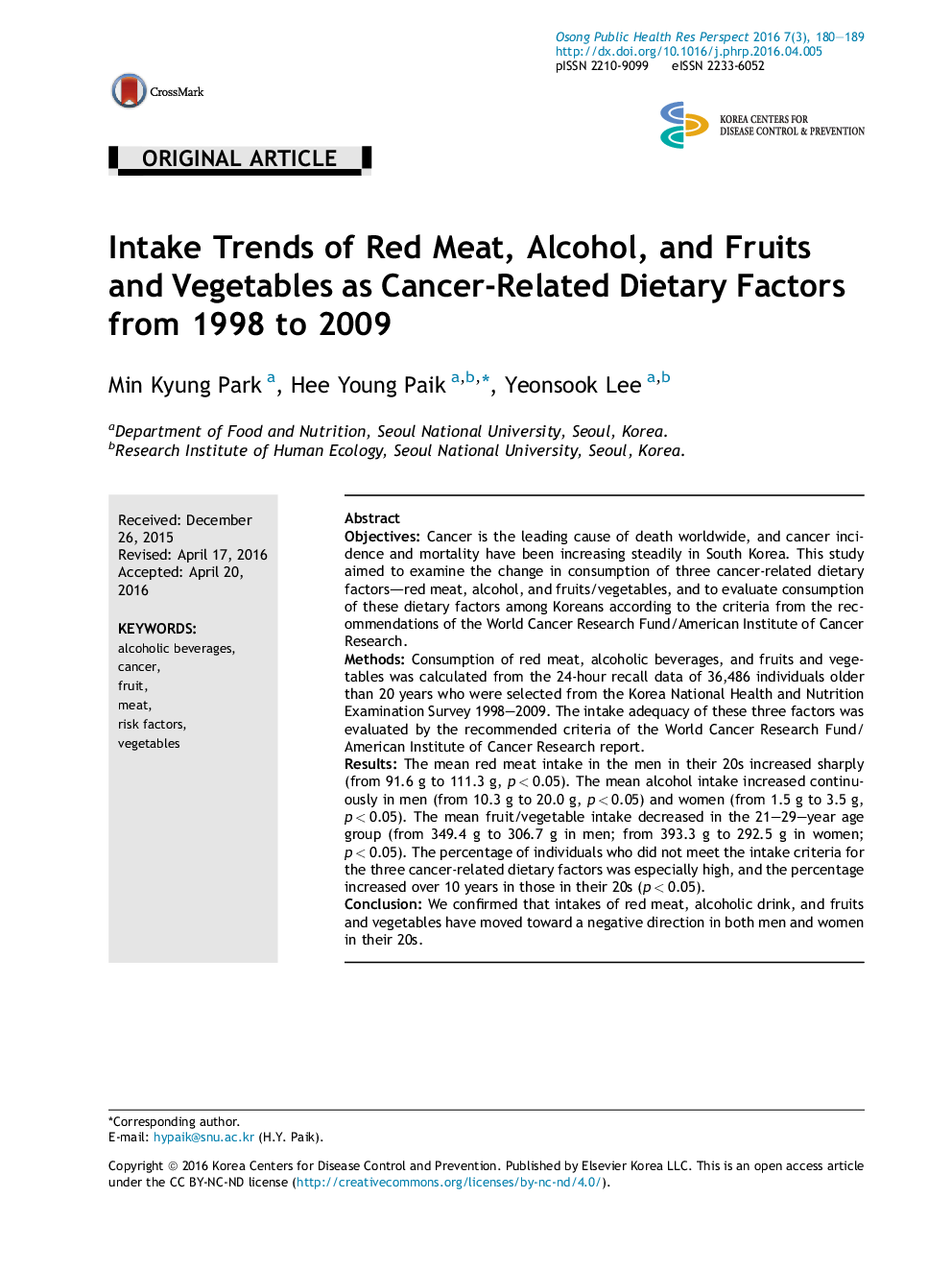| Article ID | Journal | Published Year | Pages | File Type |
|---|---|---|---|---|
| 4201855 | Osong Public Health and Research Perspectives | 2016 | 10 Pages |
ObjectivesCancer is the leading cause of death worldwide, and cancer incidence and mortality have been increasing steadily in South Korea. This study aimed to examine the change in consumption of three cancer-related dietary factors—red meat, alcohol, and fruits/vegetables, and to evaluate consumption of these dietary factors among Koreans according to the criteria from the recommendations of the World Cancer Research Fund/American Institute of Cancer Research.MethodsConsumption of red meat, alcoholic beverages, and fruits and vegetables was calculated from the 24-hour recall data of 36,486 individuals older than 20 years who were selected from the Korea National Health and Nutrition Examination Survey 1998–2009. The intake adequacy of these three factors was evaluated by the recommended criteria of the World Cancer Research Fund/American Institute of Cancer Research report.ResultsThe mean red meat intake in the men in their 20s increased sharply (from 91.6 g to 111.3 g, p < 0.05). The mean alcohol intake increased continuously in men (from 10.3 g to 20.0 g, p < 0.05) and women (from 1.5 g to 3.5 g, p < 0.05). The mean fruit/vegetable intake decreased in the 21–29–year age group (from 349.4 g to 306.7 g in men; from 393.3 g to 292.5 g in women; p < 0.05). The percentage of individuals who did not meet the intake criteria for the three cancer-related dietary factors was especially high, and the percentage increased over 10 years in those in their 20s (p < 0.05).ConclusionWe confirmed that intakes of red meat, alcoholic drink, and fruits and vegetables have moved toward a negative direction in both men and women in their 20s.
